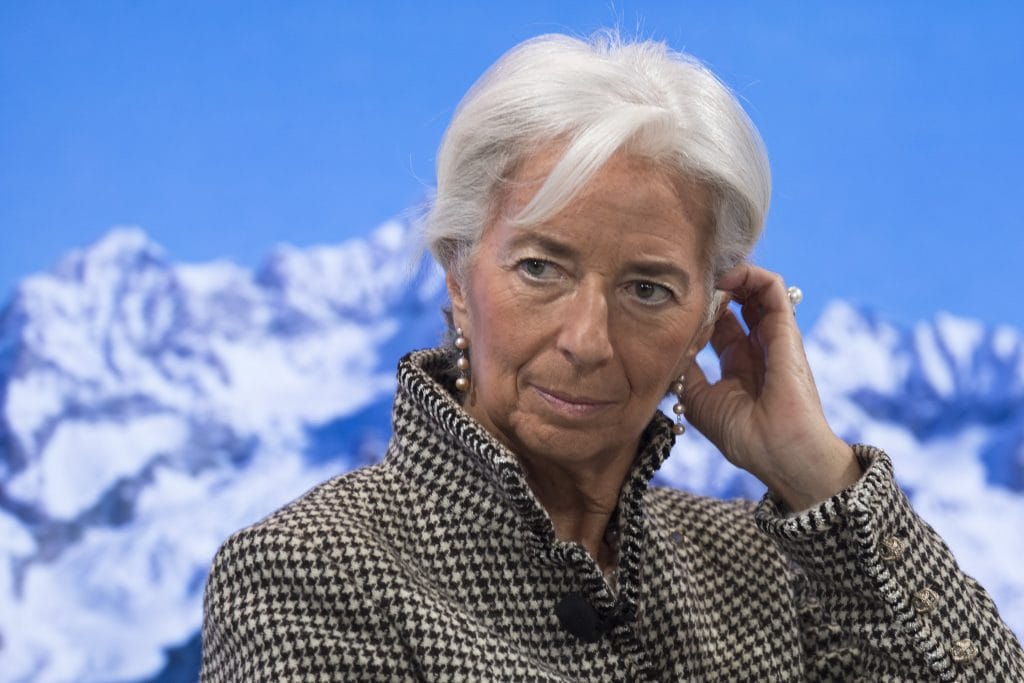
As it seems likely that Christine Lagarde will assume one of the main roles in the European Union, the presidency of the European Central Bank, the buzz surrounding the nomination has grown enormously. Reactions range from a positive sentiment and a much needed female leading role in the financial institution as well as those who are not that sure about Ms Lagarde’s experience in central banks politics.
Ms Lagarde, 63, is currently Head of the International Monetary Fund (IMF) is nominated – and likely – to succeed Mario Draghi as president of the ECB when his eight-year term comes to an end in October. The heads of EU member states confirmed their preferred candidates for a raft of top jobs, including the ECB, setting the potential future direction of the bloc for the next five years. It seems that most parties agree with the nomination and is expected that Ms Lagarde will become head of the institution.
One of those who has shown their reservations about Ms Lagarde is Financial News’ expert Pierre Briançon. He recently said that the “current International Monetary Fund managing director Christine Lagarde, would come to the job without any central banking experience, and by most accounts devoid of the character that allowed Draghi to utter his famous promise in 2012 to do “whatever it takes” to keep the monetary union together.”
Briançon is also concerned about the viability of the project in the long term, as the ECB would be headed by two personalities hailing from politics, without proper experience in central banking or a serious academic background. He mentions the two main personalities within the institution: on one side would be Ms Lagarde, a former minister under French conservative presidents Jacques Chirac and Nicolas Sarkozy, and, on the other, ECB vice-president Luis de Guindos, an ex-conservative Spanish finance minister.
“She will be a good choice for financial markets,” deVere Group CEO, Nigel Green
On the other side of the spectrum, the nomination of Ms Lagarde has been seen as a welcomed change in a tired and not-so-popular institution. deVere Group boss, Nigel Green, truly believes she will be a good choice for financial markets as the President of the European Central Bank, affirms the CEO of one of the world’s largest independent financial advisory organisations.
Mr Green comments: “The nomination of Christine Lagarde is both surprising and controversial. It is surprising because she herself has previously appeared to rule herself out from the job. Also, because she is not an economist, she’s a political figure with no direct experience of central banking.”
However, the deVere boss admits that it is controversial due to her ‘baggage.’ Under her leadership the IMF’s conduct “raised issues of accountability and transparency,” according to a report. She was also found guilty of negligence by a French court over her handling of a case during her time as the French finance minister.
He continues: “However, despite some scepticism, I believe Christine Lagarde’s appointment would be well-received by financial markets. She is a known quantity. She is broadly considered a safe and competent pair of hands. She represents certainty. All this benefits markets.”
He goes on to add: “Criticism is being directed at her because her remit is to try and assimilate different fiscal policies with a single monetary one and she is not known as a leading economist, but more as a political figurehead.”
But with many of Europe’s most pressing economic issues stemming from the political sphere, her political savvy could be an important advantage at this point.
“Ms Lagarde can be expected to share Draghi’s liking for aggressive and innovative monetary policy. She is likely to insist on Quantitative Easing should inflation remain sluggish. Markets will appreciate this, especially as global economic growth appears to be slowing,” the expert concluded.

Hernaldo Turrillo is a writer and author specialised in innovation, AI, DLT, SMEs, trading, investing and new trends in technology and business. He has been working for ztudium group since 2017. He is the editor of openbusinesscouncil.org, tradersdna.com, hedgethink.com, and writes regularly for intelligenthq.com, socialmediacouncil.eu. Hernaldo was born in Spain and finally settled in London, United Kingdom, after a few years of personal growth. Hernaldo finished his Journalism bachelor degree in the University of Seville, Spain, and began working as reporter in the newspaper, Europa Sur, writing about Politics and Society. He also worked as community manager and marketing advisor in Los Barrios, Spain. Innovation, technology, politics and economy are his main interests, with special focus on new trends and ethical projects. He enjoys finding himself getting lost in words, explaining what he understands from the world and helping others. Besides a journalist he is also a thinker and proactive in digital transformation strategies. Knowledge and ideas have no limits.









